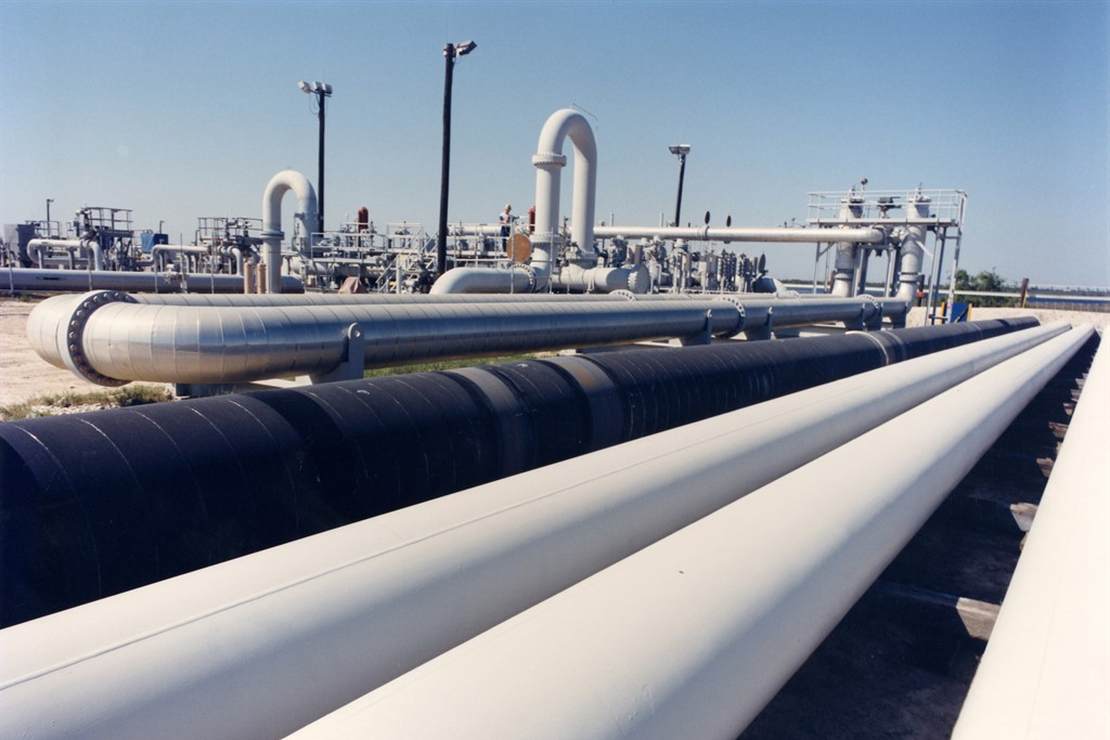
Our Energy Secretary, Jennifer Granholm, has been awfully quiet during one of the worst energy crises we’ve seen in decades. But she did pop her head up this week long enough to take a few questions from reporters during a tour of the Bayou Choctaw salt dome, the location of some of the nation’s dwindling Strategic Petroleum Reserves. One reporter asked her if President Biden was considering placing limits on petroleum exports to other nations as a way to slow the rise of gas prices and the cost of other fuel oils. Her response, while rather noncommital, was that Joe Biden “is not taking any tools off the table.” Assuming this is even accurate, that would mean that Biden is indeed thinking of mandating caps on the export of petroleum products. Apparently, nobody thought to ask Granholm whether or not Uncle Joe had discussed this with our trading partners in advance. (Reuters)
U.S. President Joe Biden has not ruled out using export restrictions to ease soaring domestic fuel prices, U.S. Energy Secretary Jennifer Granholm said on Tuesday.
Asked if the United States was considering restricting petroleum exports to ease fuel prices, Granholm said “I can confirm the president is not taking any tools off the table.”
Granholm was speaking to reporters during a tour of the Bayou Choctaw salt dome, part of the nation’s Strategic Petroleum Reserve system.
The United States exported around 8.6 million barrels per day of oil and refined products in 2021, slightly more than it imported, according to the Energy Information Administration.
READ RELATED: One 9-year-old survivor's description of what happened inside the school (Update)
It’s rather ironic that Granholm was standing in one of the sites of the Strategic Petroleum Reserve when she revealed this information. President Biden has already issued orders that are currently draining that reserve to the lowest levels seen in decades with no short-term plan for restoring them. And it’s already been suggested that he might drain them even lower in a desperate bid to lower gas prices before the election. Those reserves are supposed to be there in the event of an actual emergency, not an emergency of our own making.
As far as curbing exports goes, that might be one way to produce a slight dampening effect on domestic supply issues, but it would come with some serious implications. You are free to debate the wisdom of having export agreements when we’re still importing foreign oil if you wish. I’ve asked the same questions myself. But the fact is that we entered into those trade agreements, almost entirely with our allies, and we’re expected to honor them. If you suddenly stop exporting the amount of petroleum products you promised, that throws a wrench into the supply chain plans of our allies. It can also incur penalties on us.
What the administration is doing yet again is trying to combat the symptoms without addressing the underlying malady. The problem isn’t how much oil and related products we’re exporting. It’s how much we are producing and refining. The demand for oil, gas, diesel and heating oil is not going to change significantly except for continuing to rise. If supplies do not rise to meet that demand, there will be shortages.
As we just discussed on Monday, we are in the process of shutting down refineries just as demand for their products rises, both domestically and abroad. This is happening in parallel with the cancellation of three mandatory oil and gas drilling lease permit auctions by the White House, along with a 50% increase in royalty fees for the permits they do manage to approve. In short, we are weakening our ability to produce supplies at the same time that demand is increasing. And the only solution that the Biden administration can come up with is to shortsheet our trading partners?
It’s almost amazing to reflect on the fact that barely two years ago we were celebrating the first time that the United States became a net oil and gas exporter. We were producing so much product that we almost had to give it away at times. And gas prices stayed at almost historic lows during all of the last presidency. In less than eighteen months all of that has gone away. If reporters want to ask our Energy Secretary some actual probing questions, perhaps they could ask her to comment on that.
Source:






